SUMMARY
This is AI generated summarization, which may have errors. For context, always refer to the full article.
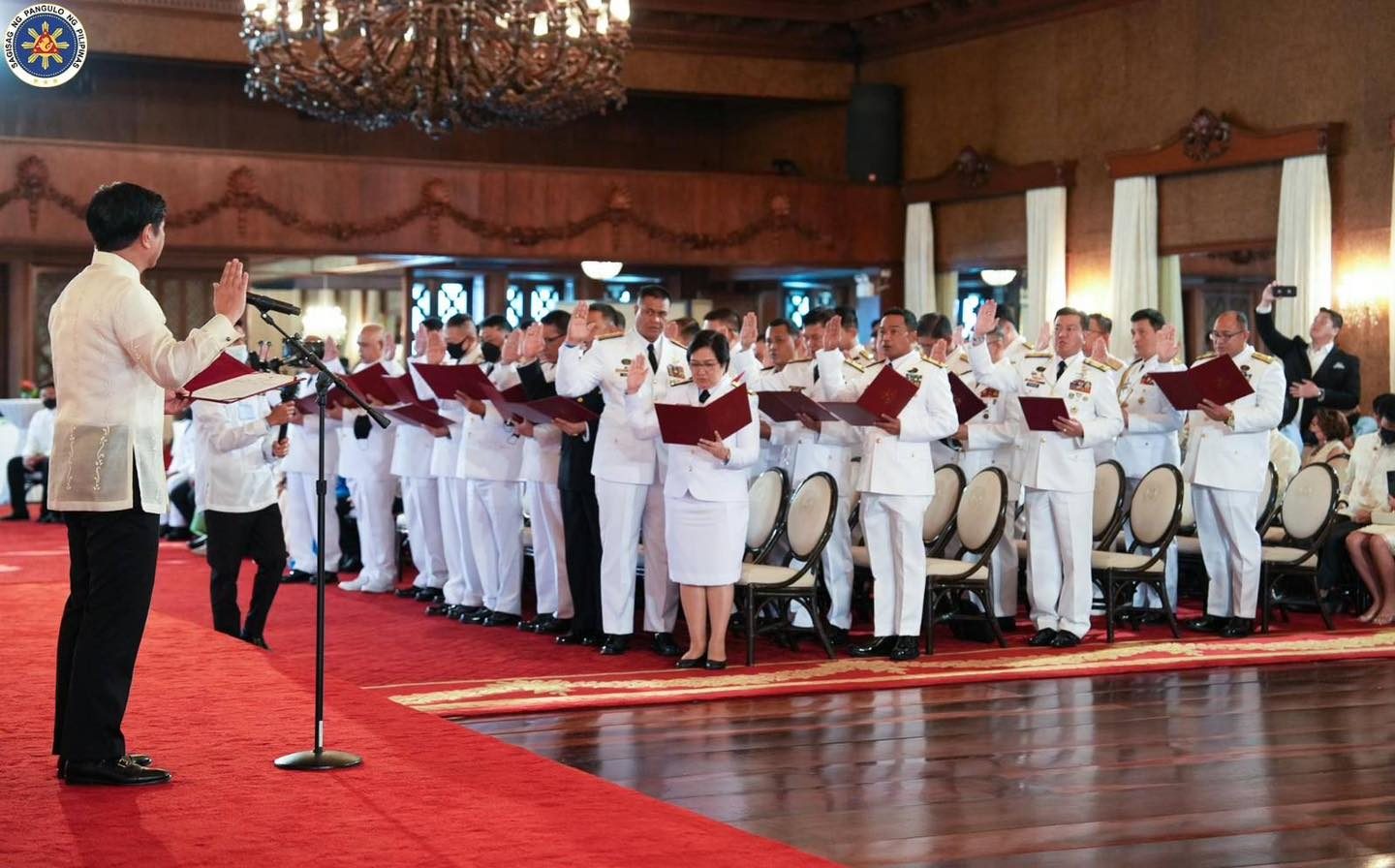
MANILA, Philippines – President Ferdinand Marcos Jr. told the military’s top brass to “be more agile” in how they respond – not only militarily but “also in diplomacy, also in geopolitical negotiations.” Marcos made the remarks in a closed-door ceremony at Malacañang Palace on Monday, February 6, during which he swore in newly-promoted officers of the Armed Forces of the Philippines (AFP).
The Palace’s communications arm released to the media portions of Marcos’ speech through a release, while RTVM, an agency tasked to document the President’s official activities, uploaded excerpts online.
Speaking to newly-promoted generals and flag officers of the AFP, Marcos talked of a “new mission that our Armed Forces has to face in this day and age.”
“It is very clear to all of us that the geopolitical situation around the world and especially in our region has become more and more complicated. We, therefore, have to be more agile in our responses not only in the military area but also in diplomacy, also in geopolitical negotiations, and in our partnerships that we foster with our friends and allies around the world,” he said.
The Philippines is right in the middle of these tensions in the Southeast Asian region – particularly in the intensifying competition between the US and China. The US is the Philippines’ oldest treaty ally, with whom it shares a long and complicated history – from a former American colony to a key regional partner. Ties between the Philippines and China, particularly economical, have strengthened in the past decades, especially during the administration of Marcos predecessor, Rodrigo Duterte.
“Not only has the situation – the geopolitical situation – become more complex, even the method of warfighting has become more complex with the new technologies, with the new capabilities that have become available to us,” added Marcos.
His words came just days after the Philippines and the US announced that they had agreed on four new local bases were American soldiers can build facilities and preposition defense assets, a decade after the Enhanced Defense Cooperation Agreement (EDCA) was signed.
As expected, the latest development in Manila and Washington’s defense and security ties has riled Beijing even more. In a statement, the Chinese Embassy in Manila said “the United States, out of its self interests and zero-sum game mentality, continues to step up military posture in this region.” Added the Chinese Embassy: “Its actions escalate regional tension and undermine regional peace and stability.”
Marcos has previously claimed a foreign policy of being “friend to all, enemy to none.” During a January 2023 state visit to Beijing, Marcos and China’s Xi Jinping spoke of a “new golden age” between the two Asian countries. At the same time, Marcos said that he “cannot see the Philippines in the future without having the United States as a partner.”
His pronouncements and the recent EDCA development are sharp deviations from Duterte, whose “legacy” he had vaguely promised to continue.
The oath-taking of military generals, meanwhile, happened after a relatively tumultuous start of the year for the defense sector under Marcos. Within weeks, Marcos replaced his AFP chief, Defense Secretary, and National Security Adviser.
First was the sudden switch in AFP chief – from Bartolome Bacarro, a man he had picked in August, to Andres Centino, the same general he had chosen to replace in the first place. This shake-up triggered the resignation of his defense officer-in-charge, Jose Faustino. Faustino’s quitting, in turn, sparked destabilization rumors.
Carlito Galvez, whom Marcos eventually tapped as his first Secretary of Defense, promised to address remaining promotions in the military that had been delayed. – Rappler.com
Add a comment
How does this make you feel?










![[In This Economy] Marcos’ POGO ban is popular, but will it work?](https://www.rappler.com/tachyon/2024/07/thought-leaders-marcos-pogo-ban.jpg?resize=257%2C257&crop=255px%2C0px%2C720px%2C720px)
![[Rappler Investigates] POGOs no-go as Typhoon Carina exits](https://www.rappler.com/tachyon/2024/07/newsletter-graphics-carina-pogo.jpg?resize=257%2C257&crop=424px%2C0px%2C1080px%2C1080px)



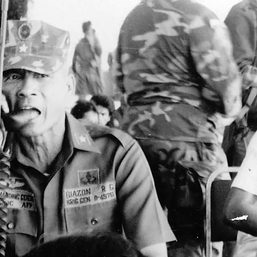
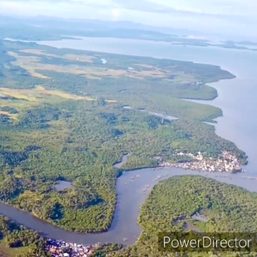
![[OPINION] Is Marcos in full command of defense, military establishments?](https://www.rappler.com/tachyon/2023/02/tl-marcos-centino-incognito.jpg?resize=257%2C257&crop_strategy=attention)
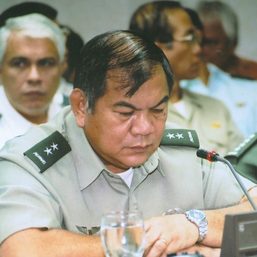




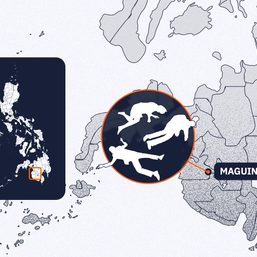
There are no comments yet. Add your comment to start the conversation.